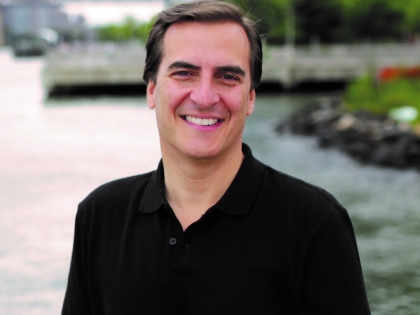
THE CITY: Bail Reformers Worry Prosecutors Will Amp Up Charges to Jail Defendants

When state bail reform laws take effect on New Year’s Day, champions of the change worry about at least one unintended consequence: prosecutors upping charges to avoid automatically freeing defendants.
The new law blocks judges from jailing defendants hit with misdemeanors or nonviolent felonies, with or without bail. Those accused will instead be released and ordered to return for their next court date.
State Sen. Michael Gianaris (D-Queens), an early proponent of bail reform, said he feared prosecutors will inflate charges in a bid to keep some defendants behind bars.
“Prosecutors have discretion [on] what they charge,” he said. “That’s just something we are going to have to stay on top of and make sure it doesn’t happen.”
After bail reform passed, Gianaris introduced a second bill that would have required the courts to collect and publish data on pretrial proceedings — everything from the total number of criminal cases to the number of people released without bail and details of those cases.
“In order for policy makers to be able to assess the practical outcomes of these reforms, robust data must be made available,” the proposal states.
But the legislation got stuck in the Assembly last summer after passing through the State Senate.
‘Highest Provable Crime’
Meanwhile, an umbrella group representing state prosecutors insists criminal charges are always based on the merits of each case.
“Charging decisions are at the heart of a prosecutor’s discretionary function,” said David Hoovler, president of the District Attorneys Association of the State of New York.
“There is also an ethical duty to make sure that a charge is supported by probable cause and prosecutors take that very seriously,” added Hoovler, who is also Orange County’s DA. “However, consistent with ethical guidelines district attorneys will always seek to charge the highest provable crime.”
A skeptical Marie Ndiaye, supervising attorney of the Legal Aid Society’s Decarceration Project, suggested prosecutors will look for new ways to keep defendants confined.
“They’ve shown throughout the process that they are looking for ways to subvert the law,” she said.
Prosecutors and police unions oppose the bail overhaul. Jed Painter, an assistant district attorney in Nassau County, created a podcast to help other prosecutors in the state deal with the sweeping changes.
During his presentation, Painter describes a way for prosecutors to jail people who miss court dates — normally a bail-exempt offense. He advises DAs not to have the defendant picked up right away.
“Don’t be their Uber,” he said. “You’re not going to get bail on them for that violation. Wait the 30 days, and then you’ve got your bail jumping charge waiting for them. You reprocess them on the bail jumping too.”
He added, “Of course, if public safety is an issue, you don’t want to wait the 30 days.”
New York opted not to include the power for judges to jail defendants deemed a public safety risk. By contrast, New Jersey explicitly gives judges the power to jail people they consider a threat to public safety, under its recent bail-reform law.
Painter also suggested making defendants who miss court dates check in every day via phone or Skype.
“Can you do this by yourself? No. Can you talk to your administrative judges about doing this? Absolutely and I would,” Painter said.
Painter has defended his advice, telling City & State “I have offered to promote compliance with these well-intended but flawed laws.”
Other Outs
Public defenders are aware of other possible loopholes in the law.
New York’s Legislature created a long list of criminal statutes for which pre-trial release is mandatory. But some offenses were left off the roster.
For instance, the new measure doesn’t preclude pretrial jailing or bail being set by judges in cases of attempted burglary or attempted robbery in the second degree, even though those crimes do not entail violence.
By contrast, people charged with those same offenses who actually complete the alleged crime must be released under the new law.
It is unclear why the exception was not included in the sweeping legislation.
Some lawmakers are still trying to get the bail reform laws overturned somehow.
On Dec. 24, City Councilmember Chaim Deutsch (D-Brooklyn) urged his followers to sign a petition to Gov. Andrew Cuomo to say “NO” to the upcoming changes.
Cuomo signed the bill into law last legislative session and has not changed his mind on the issue.
“While there are certainly crimes that should be punishable by just a ticket (such as a traffic violation), that is not the case with many others,” the petition reads. “Crimes like selling drugs to children, arson, promoting a sexual performance by a child, assault, and stalking are serious offenses that could potentially result in extended prison time.”
‘Rich Wait at Home’
Ndiaye and other bail reform advocates argue that Deutsch and other opponents are “fearmongering.”
“I think the people who are doing that should be ashamed,” Ndiaye said. “They are trying to scare the public instead of helping the law work and get people the tools that they need to succeed.”
She pointed out that people facing the charges Deutsch listed are, under the old law that expires this week, able to remain free if they can afford to pay the bail set.
“Let’s be clear: the ability to pay cash bail has determined where you wait out the trial process: at home, or in jail. The rich wait it out at home,” said Norman Reimer, executive director of the National Association of Criminal Defense Lawyers and board chair of the New Yorkers United for Justice, a statewide coalition of nonprofit organizations.
On Thursday, that group published a report to dispel “myths and misinformation on bail reforms.”
It notes that bail changes have actually “contributed to lower crime rates” in states like New Jersey, Maryland and North Carolina.
Some recent research has shown that people stuck in jail and away from their families while awaiting trial increases their chances of committing another crime in the future.
Scott Levy, chief policy counsel with The Bronx Defenders, described the bail changes as a “long overdue rebalancing of the system.”
He added: “This is an opportunity to rethink justice, fairness, and what it is our criminal legal system should be doing in the first place.”
This story was originally published by THE CITY, an independent, nonprofit news organization dedicated to hard-hitting reporting that serves the people of New York.
To read the full story at THE CITY, click here.



